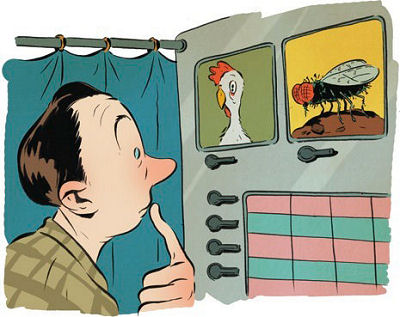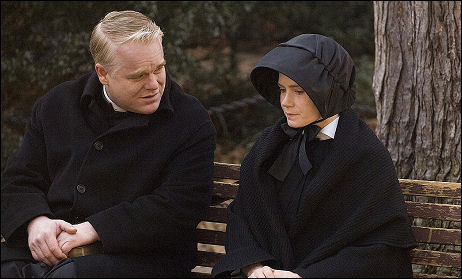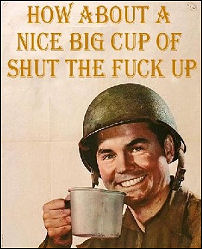A day after speaking with Errol Morris about Standard Operating Procedure on or about 4.11.08, I wrote a piece titled “Morris Should Sell Obama.” The idea was to re-boot Morris’s brilliant spots for John Kerry in ’04, which focused on “real people” (mostly Republicans) who’d voted for Bush in 2000, but were going for Kerry that year.
I think they’re brilliant and very effective, despite what the usually perceptive Glenn Kenny had to say. I’m sorry but these spots really get me. In the heart, I mean. I actually got a little choked up.
Here are a series of individual spots by (a) Suzanne Lentz, (b) Bob Morgan, (c) David Hurwitt, (d) Bob Courtney, (e) Jennifer Pyrz, and (f) Brian O’Neill.
Here’s what Kenny said last April: “Jesus, Jeff. Errol Morris is the last goddamn thing Obama needs right now. Do you have no clue, even after all this time, about how the right-wing noise machine works? ‘Now we find the elitist Obama working with art-movie sweetheart Errol Morris, whose latest anti-American screed Standard Operating Procedure is hitting (hopefully not too many) theaters now…’ etcetera etcetera etcetera.
“Also, Morris’ spots didn’t do Kerry a goddamn bit of good.
“You can kick and scream and hold your breath until your face is blue about Gorilla America all you want, but Obama’s gonna need some of their votes if he’s gonna make it. And Morris ain’t gonna get them for him. This election is not going to work according to any of your noblest-case-scenario schemes.”
You were right about Obama needing Gorilla America, Glenn, but you were wrong about the Morris effect. There’s no way these new spots won’t persuade the nuclear physicists who are still sitting on the fence to pop for Obama. If they see them, obviously. If the spots get sent around and are linked to on the various sites. Four days to go.





